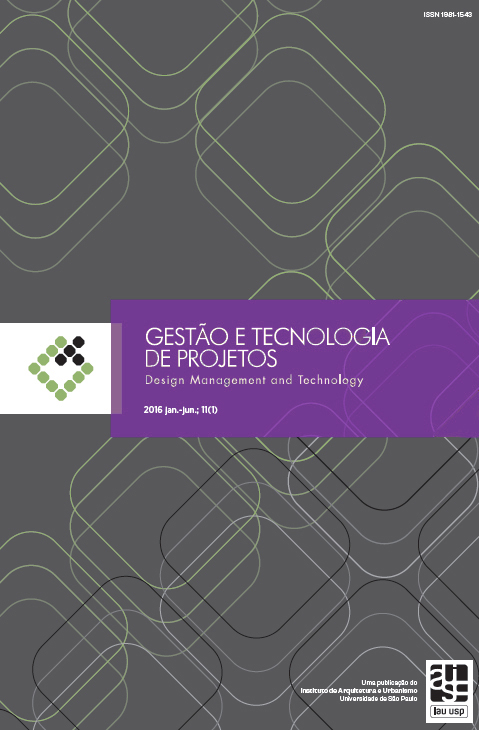AVALIAÇÃO DA ANÁLISE CRÍTICA COLETIVA DE PROJETO SOB A ÓTICA DOS ESTUDANTES DE ARQUITETURA E URBANISMO
DOI:
https://doi.org/10.11606/gtp.v11i1.99202Palabras clave:
Crítica, Autonomia, Ensino-aprendizagem de projeto.Resumen
A prevalência de ambientes de ensino-aprendizagem de projeto caracterizados por uma rígida estrutura hierárquica tem sido recorrentemente apontada como um problema a ser enfrentado em prol da formação de profissionais críticos e compromissados com o bem-estar social. Diante da necessidade de elevar os alunos a coprodutores do conhecimento ao longo do processo de ensino-aprendizagem de projeto, o artigo objetiva investigar como a Análise Crítica Coletiva de Projeto (ACCP), uma modalidade de assessoramento coletivo de projeto que vem sendo aplicada na oficina Problemas de requalificação de áreas e edificações urbanas, é avaliada pelos alunos do curso noturno de Arquitetura e Urbanismo da Universidade Federal de Minas Gerais (UFMG). A análise qualitativa dos dados obtidos através da aplicação de um questionário indica que, segundo a percepção dos discentes, a ACCP, dependendo das habilidades e competências do professor, pode facilitar a criação de um ambiente de ensino-aprendizagem mais horizontal e propício ao desenvolvimento da capacidade de (auto)crítica e autonomia dos alunos. Dentre os outros benefícios associados à técnica, cabe destacar: (i) ampliação do quadro de referência; (ii) promoção da aprendizagem coletiva; (iii) otimização da produção projetual; (iv) promoção da criatividade; e (v) desenvolvimento de habilidades requeridas pelo trabalho em equipe, como a de apresentar, comunicar, ouvir, perguntar e argumentar diante de um grupo.
Descargas
Descargas
Publicado
Número
Sección
Licencia
Autores que publicam nesta revista concordam com os seguintes termos:
- Autores mantém os direitos autorais e concedem à revista o direito de primeira publicação, com o trabalho simultaneamente licenciado sob a Licença Creative Commons Attribution-NonCommercial-NoDerivatives 4.0 que permite o compartilhamento do trabalho com reconhecimento da autoria e publicação inicial nesta revista.
- Autores têm autorização para assumir contratos adicionais separadamente, para distribuição não-exclusiva da versão do trabalho publicada nesta revista (ex.: publicar em repositório institucional ou como capítulo de livro), com reconhecimento de autoria e publicação inicial nesta revista.
- Autores têm permissão e são estimulados a publicar e distribuir seu trabalho online (ex.: em repositórios institucionais ou na sua página pessoal) a qualquer ponto antes ou durante o processo editorial, já que isso pode gerar alterações produtivas, bem como aumentar o impacto e a citação do trabalho publicado (Veja O Efeito do Acesso Livre).



